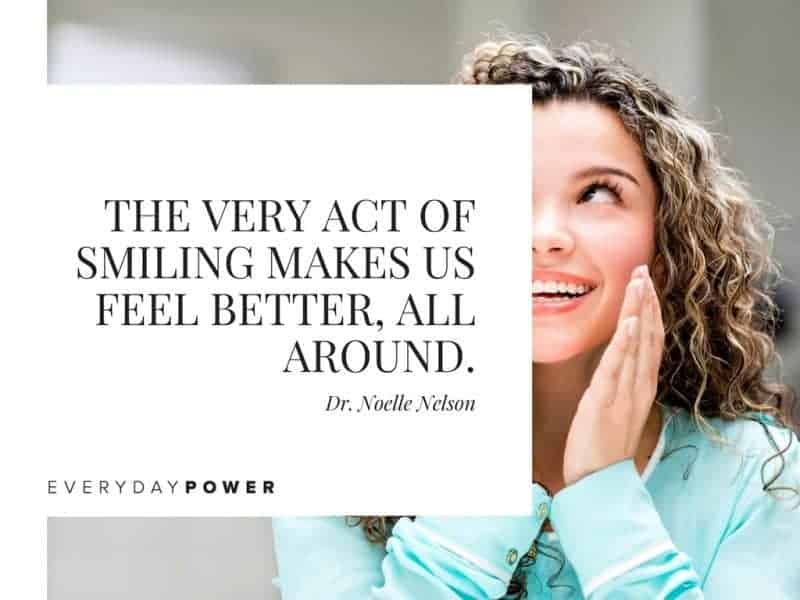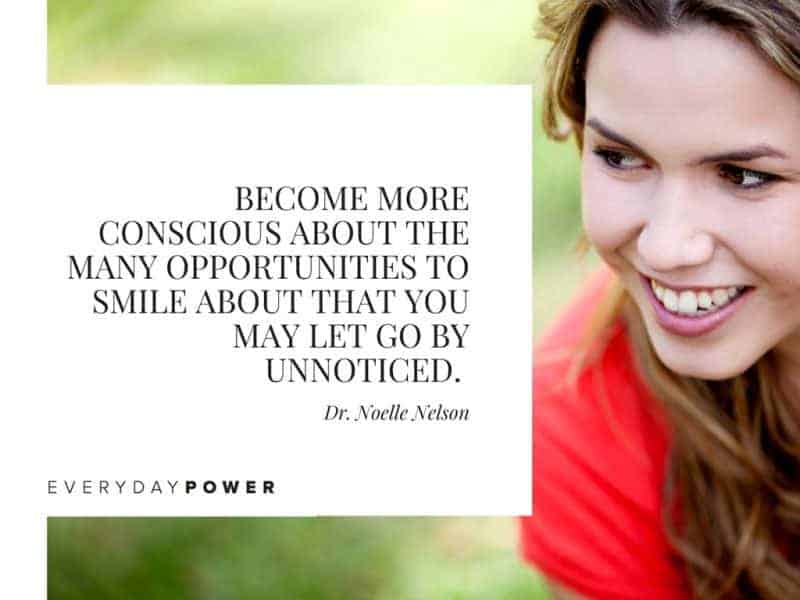How a Mindful Smile Improves Your Happiness and Health
Babies smile—a lot. Beauty queens smile—on cue.
Winners smile—mostly in between all that jumping and high-fiving. Smiles are a way of expressing our happiness, our joy, our pride, or our gratitude.
More than that, smiles are a way of connecting, of saying—without words—‘I’m with you on this. I acknowledge you as a fellow human, or as a delightful animal, or a beautiful flower; someone or something I’m in sync with’.
All this you already know. But did you know smiles are really good for your health and well-being?
What a Smile Does To Your Health
One research by Hewlett Packard used electromagnetic brain scans and heart-rate monitors to measure the “mood-boosting values” for a variety of stimuli including sex, chocolate, and money.
Their findings are astounding: one single solitary smile can provide the same level of mood-enhancement as up to 2,000 chocolate bars, as stimulating as getting up to 16,000 pounds sterling (roughly $20,000), and smiles are more likely to produce a better short-term high than either sex or shopping!
So, if your credit cards are maxing out—try smiling! If you’re too hooked on chocolate—find something or someone to elicit a smile from you!
Dogs always work for me. Of course, so do flowers, sunsets, and Carol Burnett re-runs.
But here’s the thing. We’re not talking New Age feel-good stuff here. Smiling has a well-documented physiological impact on your mind and body.
For example, neurotransmitters relay messages to your body on how to respond and react, given various situations.

Dopamine, endorphins, and serotonin, known as the “feel-good” neurotransmitters, are all released from your brain into your body when you smile. Not only do these neurotransmitters relax you, and make you feel better emotionally, but they can also lower your heart rate and blood pressure—two significant contributors to your physical well-being.
The very act of smiling makes us feel better all around.
Children smile way more than adults do—the number most commonly given is 400 times a day. This is compared to the happy adults who smile 40-50 times per day, and average adults who smile 20 times per day.
Now you may say, well, kids have fewer worries; and thus have a lot more to smile about. True. But just like anything else, you can get better at smiling with practice.
Smile More Mindfully
No, I don’t mean to affix a phony smile to your face. You can’t fool your brain; it knows the difference between the real thing and a fake.
Rather, I mean to become more conscious about the many opportunities to be happy about that you may let go by unnoticed.

You might think of it as smiling-mindfulness. Because that’s really what it is.
Becoming more mindful of occasions that—for you—genuinely merit a smile, and allowing yourself to indulge in that very life-enhancing act. (Check out our smile quotes for a pick-me-up right now!)
For example, the barista hands you your coffee. Add a smile to your “thanks.”
As a matter of fact, any time you say “thanks” or “thank you,” add a smile! That includes when you thank spouses, significant others, children, and other family members: too often we forget to smile at those closest to us.
When the sky is dotted with little puffy clouds, a sight which pleases you—smile. Someone’s yard is awash in white roses, your fave—smile.
The traffic eased up—smile!
There are a gazillion opportunities to smile each and every day.
You may never make it up to the children’s 400-smiles-per-day mark. But for sure, your body and mind will most decidedly benefit from this change.
What could be better?












Dr. Noelle Nelson
August 26, 2021 at 1:10 PM
Thank you for your kind words!
km bansal
April 14, 2018 at 1:32 AM
yes ..I liked it: say thanks with SMILE